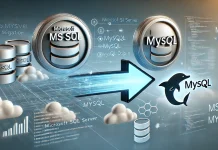Documentation and submission of information on pharmaceutical products to regulatory agencies is a mandatory requirement for licensing. This is done with the help of software that manages regulatory information and integrates technologies and processes to integrate, search and retrieve information at the national and international levels. The software optimizes regulatory requirements, streamlines compliance documentation, and reduces workarounds while reducing the risk of regulatory enforcement actions.
Importance of Information Management Software to the Medical Industry
The manual organization of information required to get permission to operate in the market of human medicine is a complicated process. To submit pharmaceutical product information, you use the CTD or electronic CTD collections, which are widely accepted worldwide. Although these documents are meant to harmonize the processes, some of the information required varies from country to country. While some countries require submission through CTD, others like the European Union and the US recommend eCTD. Even among those countries that require eCTD, some require version 3.2.2, while others require version 4.0 of the eCTD. Regarding submissions of revisions and updates, some countries demand all the information regarding the pharmaceutical product undergoing changes, while other countries only require you to submit just the changes. This process is complicated for both pharmaceutical products and other medical devices.
To effectively conduct the above processes, companies now use digital solutions like the RIMS software that are equipped with the latest regulatory information, have access to thousands of regulatory consultants, and allow you to receive critical information about your product throughout its lifespan.
The software solutions process data and present it to regulators, business stakeholders, and other parties who need it. They allow your company to control its regulatory costs, avoid inaccurate or missing information issues, and accurately comply with environmental regulations and requirements. They also manage your product’s production process and organize its registration.
Capabilities of a Good Regulatory Information Management System
Several qualities characterize a sound regulatory information management system. Firstly, the system must meet the regulated electronic requirements. It should be powerful enough to match the size and needs of the firm for which it is meant.
Secondly, an exemplary system must be able to retrieve and outline information about the global requirements of regulatory bodies. It should also oversee the submission of relevant information to these bodies when required. The data could be about new products or changes to old products.
The regulatory information management system must have the ability to not only load product data into regulatory documents like the electronic Common Technical Document (eCTD) but also configure the documents to accommodate different products and the variations of what’s required by various agencies. The system should later be able to change information in the records as needed.
Another requirement of a good platform is the creation of product information submission documents. It should then track the records every step of the way and handle any questions arising from the submissions.
How Regulatory Information Management Systems Improve Your Firm’s Competitiveness
The complexity of regulations increases every day. This, in turn, increases the time and financial resources firms have to dedicate to comply with these regulations. With the cost of direct observation already taking a toll on some organizations, these frequent changes in rules lead to charges of constantly making, implementing, and executing new plans. In the face of regulatory changes, firms also incur extra operational costs and marketing time, which affect the firm’s profitability.
For firms to remain competitive in such a dynamic business environment, they must be equipped with software solutions that keep them informed and help in the timely creation of documents and submission of information about product changes to regulatory bodies.
Conclusion
Registries are a growing industry in the health care field. They help hospitals, pharmacies, and other organizations better manage the amount of information exchanged between various systems and people. Whether an enterprise is engaged in workflow automation or regulatory compliance, there will be occasions where they also need a system that allows them to manage information according to specific regulatory requirements.








